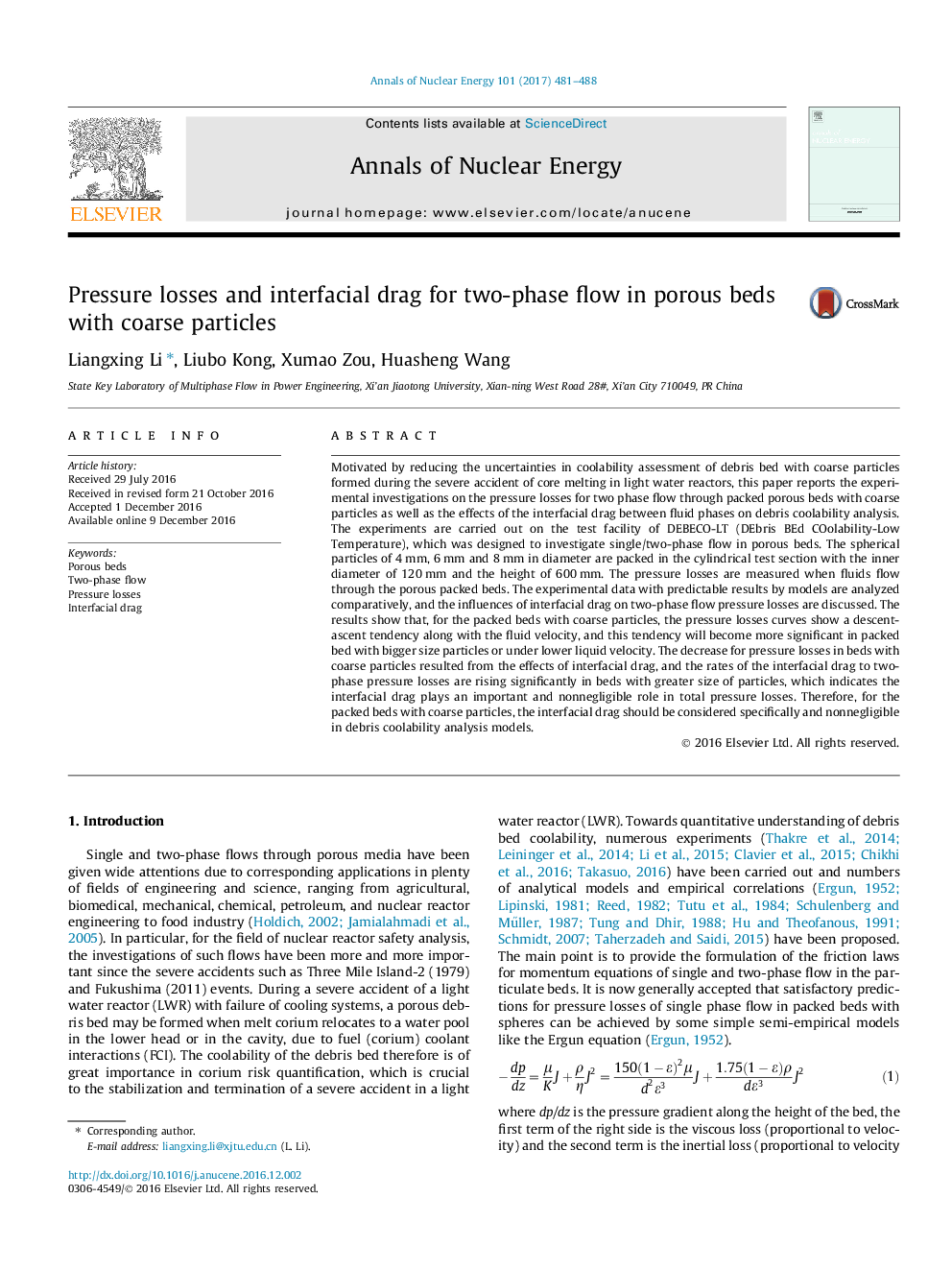| Article ID | Journal | Published Year | Pages | File Type |
|---|---|---|---|---|
| 5474893 | Annals of Nuclear Energy | 2017 | 8 Pages |
Abstract
Motivated by reducing the uncertainties in coolability assessment of debris bed with coarse particles formed during the severe accident of core melting in light water reactors, this paper reports the experimental investigations on the pressure losses for two phase flow through packed porous beds with coarse particles as well as the effects of the interfacial drag between fluid phases on debris coolability analysis. The experiments are carried out on the test facility of DEBECO-LT (DEbris BEd COolability-Low Temperature), which was designed to investigate single/two-phase flow in porous beds. The spherical particles of 4Â mm, 6Â mm and 8Â mm in diameter are packed in the cylindrical test section with the inner diameter of 120Â mm and the height of 600Â mm. The pressure losses are measured when fluids flow through the porous packed beds. The experimental data with predictable results by models are analyzed comparatively, and the influences of interfacial drag on two-phase flow pressure losses are discussed. The results show that, for the packed beds with coarse particles, the pressure losses curves show a descent-ascent tendency along with the fluid velocity, and this tendency will become more significant in packed bed with bigger size particles or under lower liquid velocity. The decrease for pressure losses in beds with coarse particles resulted from the effects of interfacial drag, and the rates of the interfacial drag to two-phase pressure losses are rising significantly in beds with greater size of particles, which indicates the interfacial drag plays an important and nonnegligible role in total pressure losses. Therefore, for the packed beds with coarse particles, the interfacial drag should be considered specifically and nonnegligible in debris coolability analysis models.
Related Topics
Physical Sciences and Engineering
Energy
Energy Engineering and Power Technology
Authors
Liangxing Li, Liubo Kong, Xumao Zou, Huasheng Wang,
